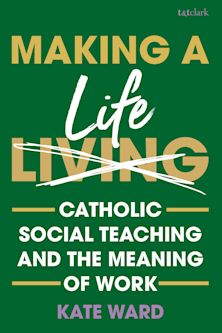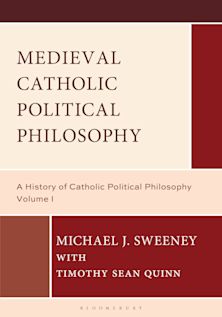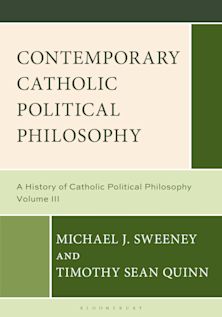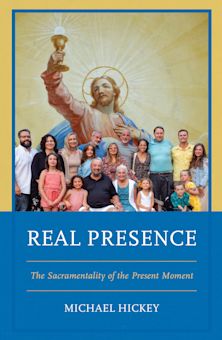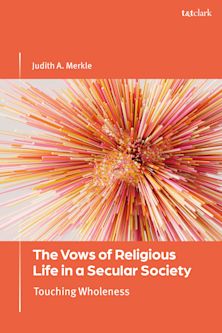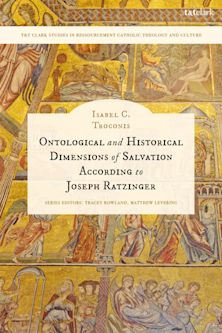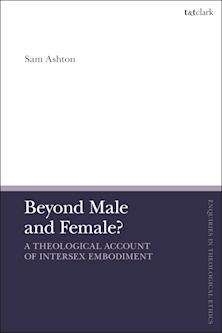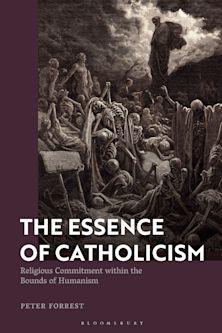The Catholic Dialogue School
From Theory to Practice and Back
The Catholic Dialogue School
From Theory to Practice and Back
This product is usually dispatched within 2-4 weeks
- Delivery and returns info
-
Flat rate of $10.00 for shipping anywhere in Australia
Description
Based on diligent theological work and practical experience, Boeve explores how Catholic schools can reconfigure their identity in an increasingly secular and pluralised world.
At a time when Christian values education has lost its plausibility and effectiveness, this work examines how a wider 'Catholic dialogue school' project would welcome the plurality of beliefs among its staff and students, actively facilitate dialogue between them, and introduce the Christian voice into this dialogue in a contemporary and challenging way.
This book offers chapters on the theological background of the project and its social relevance. With empirical evidence and case studies from across the world, Boeve dextrously analyses the practical implication of these Catholic dialogue schools. The processes of secularisation and pluralisation have changed school demographics and this has affected the construction of both individual and collective identities. In response to this changed context, this work shows how the 'Catholic dialogue school' project actively engages with such identity construction.
The book concludes by considering whether recent Church teaching supports this project and how it can strengthen the position of Catholic education in discussions about its legitimacy in contexts of (soft) secularism and shrinking educational freedom.
Table of Contents
1.1. Interrupting tradition
1.2. First contacts with the world of education
1.3. Fundamental-theological deepening: recontextualisation and interruption
1.4. Politics and/in theology
1.5. The project of the Catholic dialogue school
1.6. Between criticism and further reflection
1.7. Outline of this book
2. The challenges of a post-Christian and post-secular context
2.1. The papal visits to Belgium of 1985 and 2024: a world of difference
2.2. Secularisation and the process of cultural modernisation
2.3. From de-institutionalisation to individualisation
2.4. Post-secular and post-Christian: the evolution in figures
2.5. About procedural, programmatic and soft-secularism
2.6. How to construct identity today?
3. The Catholic dialogue school: envisioning the project
3.1. Catholic identity under pressure
3.2. The end of the project of Christian values education
3.3. The opportunity offered by plurality and dialogue
3.4. What makes the dialogue school Catholic?
3.5. The case of the Catholic dialogue school in Flanders:
mission statement (2015) and statement of commitment (2018)
4. Theological background: God interrupts history
4.1. Revelation as dialogue
4.2. Dialogue as a method: recontextualisation leads to interruption
4.3. Catholic identity at school: interrupted and interrupting
4.4. To believe in dialogue: the Christian voice
5. Engaging society: how to live together in difference?
5.1. Plurality, identity and the search for a new consensus in society
5.2. The 'nones' and the issue of social consensus
5.3. Telling good stories as a basis for dialogue and coexistence
5.4. “Which wolf will you feed?”
6. Empirical review: support base and pathways for the future
6.1. A presentation of the empirical-theological ECSI-research
6.2. From analysis to policy making: ESCI in schools in Flanders and Australia
6.3. Some global empirical observations and reflections
6.4. The Catholic dialogue school: four subtypes
6.5. The golden dot in the PCB Scale: a theological discussion
7. To be realised in all dimensions of school life
7.1. A useful matrix
7.2. In the big and small things of ordinary life at school
7.3. Making the project explicit at special occasions, with special initiatives
7.4. The triangle of identity: personal, professional and institutional identity in dialogue
7.5. Criteria for examples of good practice
8. The role of dialogue in conducting an integral identity policy
8.1. Making use of the interconnectedness of policy domains: a diagram of decision-making processes
8.2. Guarding the quality of dialogue in decision making: from cooperation to co-construction
8.3 A Warning to Conclude
9. How does the universal church think about Catholic education? And what about society?
9.1. The church: a false start with Gravissimum educationis (1965)?
9.2. The church: from dialogue with, to opposition to the world
9.3. The church: the rediscovery of the dialogue from the encounter with the other
9.4. Society: what is at stake in the freedom of education?
Conclusions and prospects
Acknowledgements
Product details
| Published | 13 Nov 2025 |
|---|---|
| Format | Hardback |
| Edition | 1st |
| Extent | 208 |
| ISBN | 9780567723611 |
| Imprint | T&T Clark |
| Dimensions | 234 x 156 mm |
| Publisher | Bloomsbury Publishing |
Reviews

ONLINE RESOURCES
Bloomsbury Collections
This book is available on Bloomsbury Collections where your library has access.












